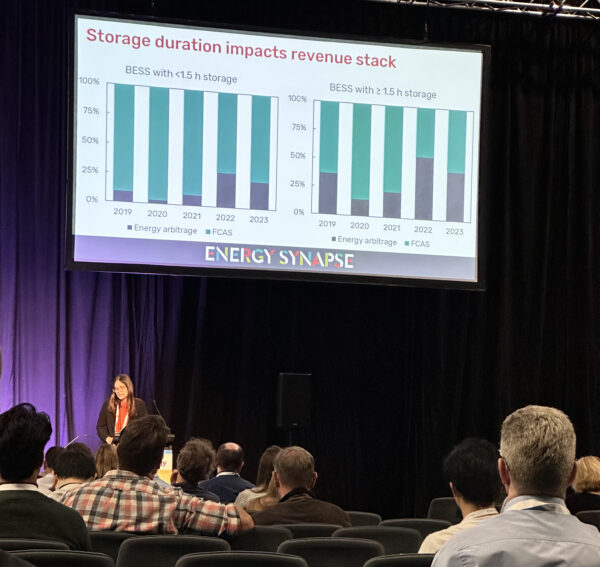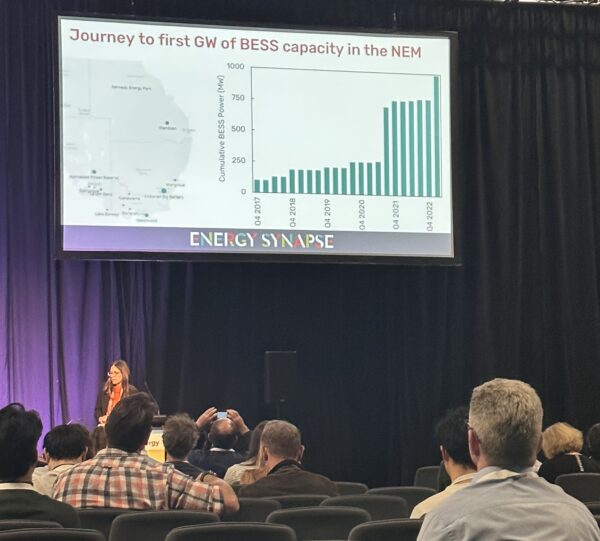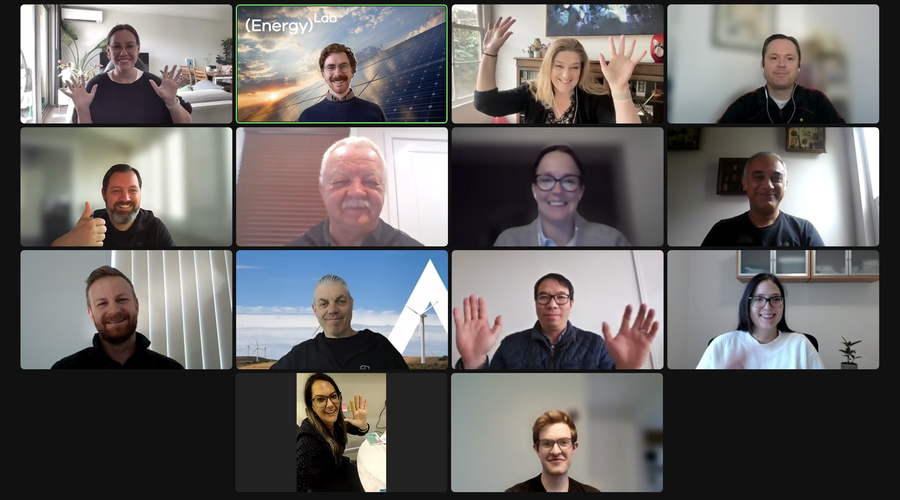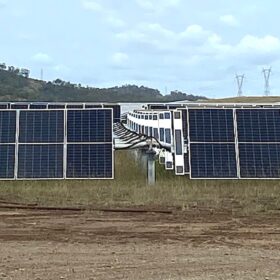Consultancy and market intelligence software company Energy Synapse and renewable-focused retailing hopeful, PowerPlay, have been selected alongside eight other global startups for this year’s EnergyLab Scaleup Program.
Basically the program brings startups together with network company Endeavour Energy and wholesale electricity provider Amber, as well as investors and mentors. The ambition is to initiate collaborations and develop initiatives to fast-track decarbonisation.
The full 2023 EnergyLab cohort includes: Accurassi, ALD Technical Solutions, Alternative Energy Innovations, Energy Synapse, Enerza, IND Technology, My Solar Manager, Plexigrid, PowerPlay, and Oaktree Power.
Energy Synapse
Energy Synapse is already a well-known name in Australia’s renewable landscape, having been on the scene as a renewable consultancy since 2016. Nearly two years ago, the company launched its Energy Synapse Platform, describing it as a “one-stop-shop for energy market intelligence.”
Energy Synapse’s Founder and Managing Director, Marija Petkovic, says with the software platform successfully received in Australia, the company is now readying to launch in the US.

Image: Energy Synapse / pv magazine
“The Energy Synapse Platform crunches data from hundreds of sources to help project developers understand the energy market and find the best spots in the grid for utility-scale wind, solar, battery, and pumped hydro projects,” Petkovic tells pv magazine Australia.
“For example, the Energy Synapse Platform gives developers a clear picture of where the constraints are happening the grid, how MLFs [marginal loss factors] are evolving, the value of the shape of generation, the evolving value stack in wholesale energy and FCAS markets.”
“Making informed investment decisions requires consideration of a vast number of factors coming from disparate sources. It is far more complex than just finding an area with strong solar irradiation or wind speed,” she adds.

Image: Energy Synapse / pv magazine
Describing the company’s progression from consulting to offering market and revenue modelling for large-scale renewables and storage, Petkovic says: “By working closely with our project developer clients, we found that they had a number of common challenges when it came to understanding the opportunities and risks in wholesale energy markets.”
“For example, some wind farms are more than four times as valuable as others. That makes a massive difference in the ROI [return on investment] for a project that costs in the hundreds of millions of dollars. We wanted to build a scalable solution to help our clients understand the factors that are driving these difference in value.”
PowerPlay
Also selected to for the program is PowerPlay, which is described by founder and CEO, Aaron Hilton, as a Web3-led energy retailer which aims to reward customers for increasing their use of renewable energy, with a special focus on Australians who can’t access rooftop solar.
Renters and people in apartments, Hilton says, “could be motivated to change habits to save money and who are being largely ignored as a demographic.”
PowerPlay isn’t retailing energy yet though, and when that side of the business will launch “depends on our conversations with existing retailers,” Hilton says.
“Our model is to offer an off-the-shelf gamified demand management platform to retailers,” he tells pv magazine, noting the company is currently in number of conversations that are progressing well.
“We will also offer this service to DNSP’s [distributed network service providers] so that can reward consumers for using energy in a way the better suits grid constraints in a way that is retailer agnostic.”
“At this point we hope to commence a number of trials in Q4 this year.”
PowerPlay also monitors at the household level. “At the bare minimum we need to be able to measure energy usage at the time it is occurring, but in some cases we can still deliver an outcome with no hardware required,” Hilton says of how that is done.
“For example EV’s [electric vehicles] like Tesla allow API commands for scheduling charging times meaning we can optimise charging for solar soaking without any need for hardware on site which is good for renters who may be unable to install hardware.
“Lots of appliances now have smart control, we can incorporate smart relays in a switch board as well. The thing is our real time incentive model gives consumers a good reason to go through the trouble to setup a ‘smart home.’”
“In time we will incorporate solar and battery systems with a focus on VPP [virtual power plant] and V2G [vehicle-to-grid].”
This content is protected by copyright and may not be reused. If you want to cooperate with us and would like to reuse some of our content, please contact: editors@pv-magazine.com.









By submitting this form you agree to pv magazine using your data for the purposes of publishing your comment.
Your personal data will only be disclosed or otherwise transmitted to third parties for the purposes of spam filtering or if this is necessary for technical maintenance of the website. Any other transfer to third parties will not take place unless this is justified on the basis of applicable data protection regulations or if pv magazine is legally obliged to do so.
You may revoke this consent at any time with effect for the future, in which case your personal data will be deleted immediately. Otherwise, your data will be deleted if pv magazine has processed your request or the purpose of data storage is fulfilled.
Further information on data privacy can be found in our Data Protection Policy.